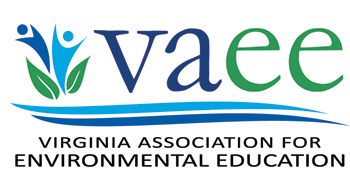Our Mission
We advance environmental literacy in Virginia, for all Virginians, through the power of environmental education by promoting excellence, fostering collaboration, and inspiring community engagement.
Our Vision
We believe in an environmentally literate, resilient, and equitable Virginia.
What We Do
We are a professional network that empowers and uplifts educators with the tools they need to support equitable outdoor access, environmental literacy, and environmental justice. We do this through our annual conference, outreach and engagement, our certification program, networking, multi sector collaboration, and by supporting school programs and curricula. Environmental education fosters positive mental and physical health, improved health and food systems, a vibrant economy, and increased academic engagement.
We Describe Ourselves by Our Values
Resilient
We embrace change and move forward through challenges while striving for growth and stability.
Inclusive
We value and respect the diversity of people, ideas, and cultures. Equity is essential to our success and we celebrate the differences which drive our achievements and social progress.
Impact Driven
We focus on the outcomes and impact of our work. We seek specific, measurable outcomes in the work we do.
Collaborative
We know our efforts are strengthened when we as individuals work together to advance environmental literacy.
Community Oriented
We build relationships throughout our community in an effort to create the bonds that allow for advancing our collective goals.
Optimistic
We know that change is possible, and we are confident that the work we do creates lasting change.
Sustainable
We approach our activities mindfully and intentionally to ensure our actions promote good stewardship and positive impact on the environment.
THE ROOTS OF EE
The Belgrade Charter (UNESCO, 1976) was established by a United Nations working group in 1975 and provides a widely accepted goal statement for environmental education. Two years later, in 1977, the world’s first intergovernmental conference on environmental education adopted the Tbilisi Declaration (UNESCO, 1978). Built on the Belgrade Charter, this declaration established three broad objectives for environmental education. These objectives provide the foundation for much of what has been done since that time:
To foster clear awareness of and concern about economic, social, political, and ecological interdependence in urban and rural areas
To provide every person with opportunities to acquire the knowledge, values, attitudes, commitment, and skills needed to protect and improve the environment
To create new patterns of behavior of individuals, groups, and society as a whole toward the environment
THE KEY PILLARS OF ENVIRONMENTAL EDUCATION
As outlined by our larger affiliate network, the North American Association for Environmental Education, environmental education focuses on the importance of experiential, interdisciplinary education. These key underpinnings help to ensure that all EE learners develop problem solving and decision-making skills and understand how to be civically engaged citizens while also creating and supporting a more diverse, inclusive, and equitable society.
Focus on systems thinking
Lifelong learning: cradle to grave
Focus on sound science
Built on a sustainability platform
Interdisciplinary
Informed decision making
Sense of place
Reflects best practice in education (learner-centered, experiential, and project-based learning)

